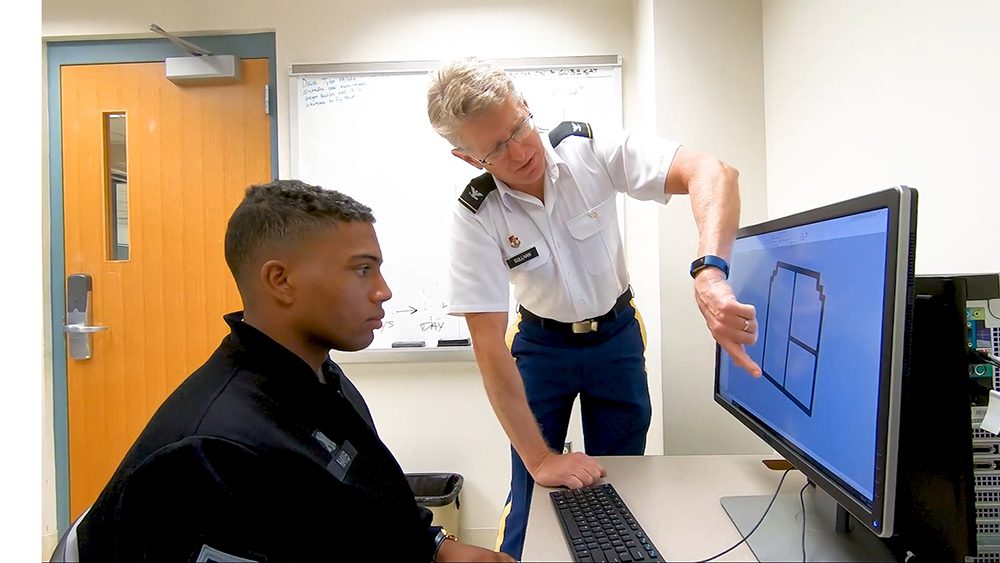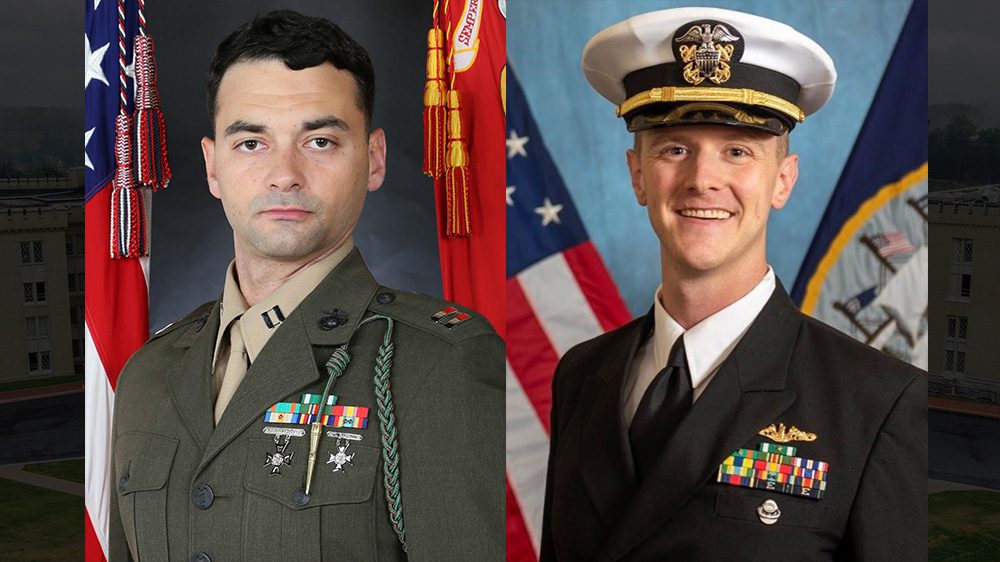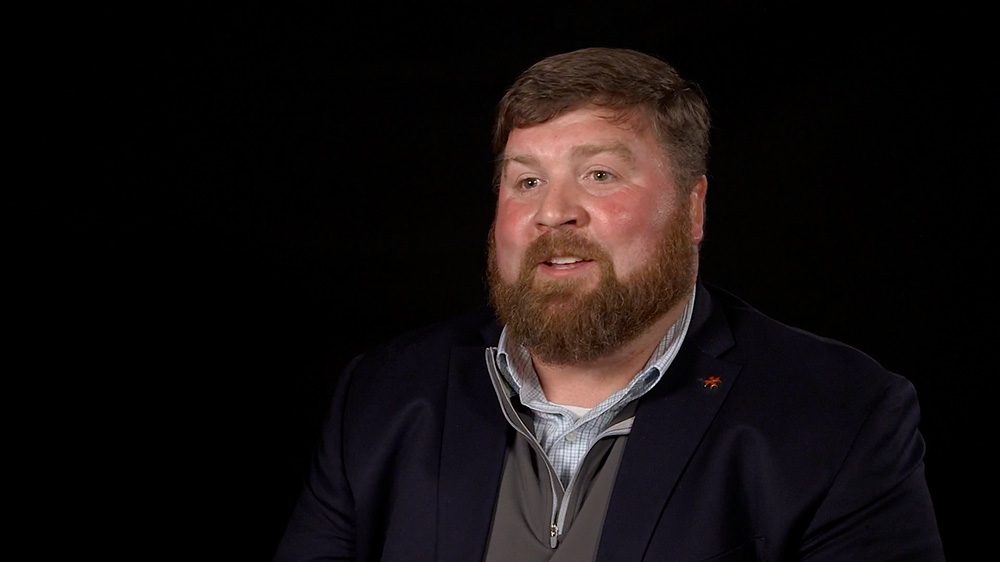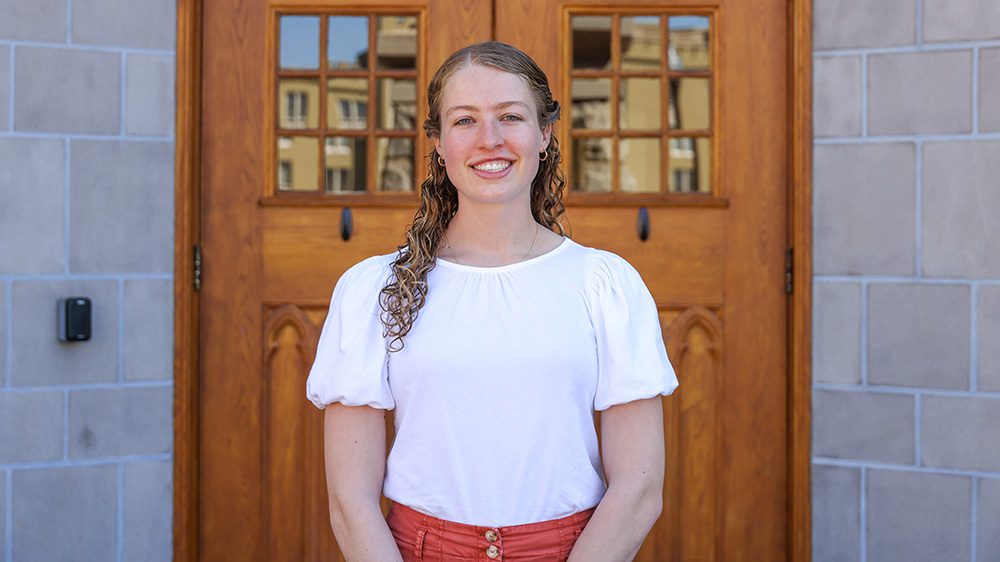From start to finish, the VMI education is all about challenges. During their years in barracks, cadets must balance academics, athletics, the co-curriculum and the military system. Alumni of all ages thrive on responding to challenges in their careers and other pursuits. It is hardly surprising then that two alumni made challenge gifts when they supported the General J.H. Binford Peay III 1962 Endowment for Academic Excellence.
The Peay Endowment first evolved out of the Jackson-Hope Fund, which has pinpointed and funded specific initiatives that strengthened the academic program. Its most recent evolution is from the Institute’s An Uncommon Purpose fundraising campaign, which raised money that continues to bolster VMI’s commitment to academic excellence. According to Donald M. Wilkinson ’61, the campaign’s chairman and the chairman of the Peay Endowment cabinet, “The campaign went a long way to ensure that VMI will compete successfully with the country’s most distinguished academic institutions and maintain its reputation for excellence. But, the campaign cabinet agreed, VMI cannot rest on its laurels.”
An effort dedicated to strengthening academics became an imperative. “As integral to the VMI experience as our athletic and co-curricular programs are,” Wilkinson explained, “the excellence of the VMI academic program will matter a lot to prospective students as they compare VMI with other schools.” The cabinet decided to establish an endowment within the VMI Foundation to fund academic chairs; merit scholarships; a fellowship program which aims to increase the number of alumni on the faculty; and an unrestricted fund to use wherever it is most needed to fund the Peay Endowment’s operational components. “The purpose is simple: Supercharge academics,” explained Wilkinson.
Wilkinson said the endowment’s name was obvious. “General Peay has done so much to strengthen every aspect of the Institute’s education and put it firmly into the top tier of American colleges. Naming it after him is a proper way to honor his visionary leadership and enhance what will surely be an enduring legacy.”
In 2017, the VMI Board of Visitors approved the Peay Endowment, and the cabinet began the fundraising effort. Two alumni, thus far, have stepped up with challenge gifts in recognition of the importance of the endowment’s mission. Early on, one of the founding cabinet members, Bruce C. Gottwald Sr. ’54 offered a $10 million challenge gift to stimulate support for the component of the endowment that provides for academic chairs. “Increasing support for our faculty has been one of the Institute’s highest priorities for years, which is why the cabinet members made it one of Peay Endowment’s priorities,” said Wilkinson.
Under the new paradigm for academic chairs at VMI, income generated by the endowments increases the compensation of high-performing faculty members. This frees up money that VMI then uses to expand the overall faculty salary pool. “Using this approach,” explained Brig. Gen. Robert W. Moreschi, dean of the faculty, “excellence among our faculty is rewarded which enhances our efforts to retain our best professors. At the same time – and this is important to note – the Institute has more money to ‘raise the tide’ for other members of the faculty which will attract and retain excellent faculty members.”
Gottwald issued his challenge in order to ensure the chairs component had maximum effect in the short term. “I wanted the faculty to start realizing the benefits of this aspect of the endowment as soon as possible.” The results of his challenge: Four chairs are currently funded, and gifts and commitments for chairs account for $16.7 million of the $28 million total committed to the Peay Endowment.
Thomas A. Saunders III ’58 joined the endowment’s cabinet in fall 2019 because he sees continual strengthening of the Institute’s academic program as vital to its future. “High-quality academics are necessary,” said Saunders, for VMI to continue its mission of “turning out the right type of men and women who, through their leadership, will help guide and strengthen this country. Although few schools can match the Institute in terms of character development, its graduates need a sound academic foundation to reach their full potential.”
According to Saunders, if VMI’s academics aren’t top flight, promising students won’t consider it. “Ultimately, if VMI wants the very best students, if it’s going to compete successfully with other schools, it will need to offer something that young people today really value, and that is world-class academics.”
Asked why, of his $7 million commitment to the Peay Endowment, he made an initial $1 million challenge gift to support merit scholarships, Saunders cited his experience on the Jackson-Hope Fund’s board of overseers. One of the highlights, he notes, has been presentations by cadets about their research. “These young men and women are incredibly impressive,” said Saunders, “and almost all of them are receiving merit-based scholarships.”
“The more merit scholars at VMI the better,” he said, “because they attract cadets of high academic potential and reward those who, after matriculation, go on to be high academic achievers. In talking to professors and the dean, it is clear that these young people improve the overall academic climate at the Institute because, by their examples, they encourage their fellow cadets to broaden their interests and strive even harder for academic success.”
Saunders’ challenge has proven to be an effective one. As of Feb. 1, 2020, an alumnus and his wife responded with a $750,000 commitment. Also, the Class of 1995 has made raising $750,000 for a merit scholarship a goal of its 25th Reunion campaign. In each case, a $250,000 match from the Saunders’ challenge will help create an individually named scholarship within the merit scholarship component of the Peay Endowment. Another $500,000 remains available to match the generosity of anyone who wants to change the lives of cadets and effect the future of VMI in a significant way.
Wilkinson praised Gottwald and Saunders for using challenge gifts in support of the endowment. “Any gift to VMI is powerful because it enhances its ability to continue its important mission,” he said. “Challenge gifts’ power is even greater because they at once bolster important programs and encourage potential donors to engage further in their philanthropy. Thanks to these gifts, the Peay Endowment already is having a profound effect on our academic program.”
-

Scott Belliveau '83 Communications Officer - Executive Projects
The communications officer supports the strategy for all communications, including web content, public relations messages and collateral pieces in order to articulate and promote the mission of the VMI Alumni Agencies and promote philanthropy among varied constituencies.

Christian Heilman Director of Digital Content
The director of digital content is responsible for creating original video and multimedia materials, as well as developing and editing web and digital content. The director is responsible for platform coordination and troubleshooting, to include the VMI Alumni Agencies’ primary websites, digital newsletter and other digital platforms.




